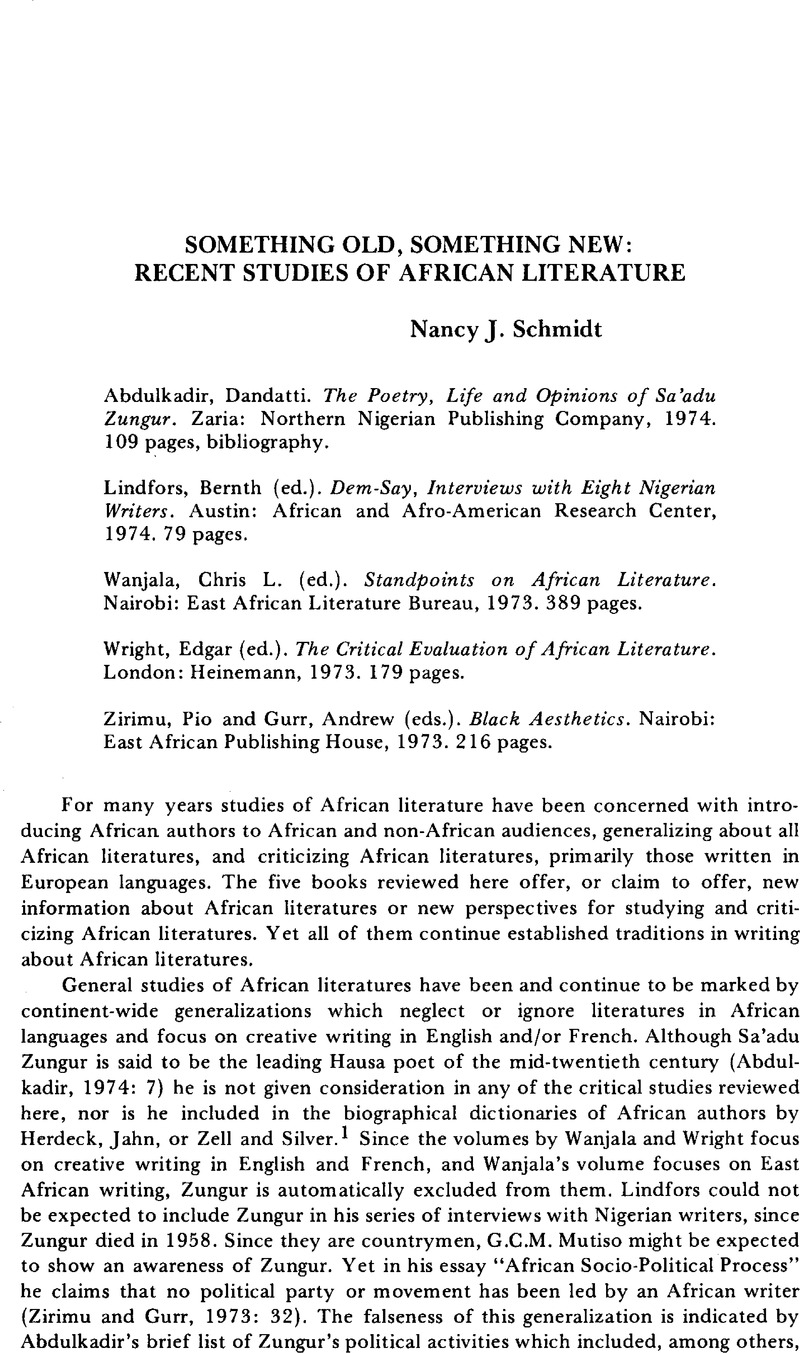No CrossRef data available.
Published online by Cambridge University Press: 23 May 2014

1. Herdeck, Donald E., African Authors (Washington: Black Orpheus, 1973)Google Scholar; Jahn, Janheinz, Who's Who in African Literature (Tubigen: Erdmann, 1972)Google Scholar; Zell, Hans and Silver, Helene, A Reader's Guide to African Literature (New York: Africana, 1971)Google Scholar.
2. This is not only my impression from reading English translations of African literature in French, for the differences of English and French have been widely commented on in general, as well as in essays pertaining to specific works of African literature; for example, Davis, Charles, “Whose Mission to Kala? Problems of Translation,” Ba Shiru 4, 2 (1973), pp. 25–33 Google Scholar; and Packman, Brenda, “Some Problems of Translation in African Literature,” in Heywood, Christopher (ed.), Perspectives on African Literature (New York: Africana, 1971), pp. 64–77 Google Scholar.
3. The Northern Nigerian Publishing Company is translating popular Hausa stories for school children in its Controlled Readers for Primary Schools Series. The series includes Bello's, The Adventures of Warrior Gandoki (1971)Google Scholar, Iman's, Rwan Bagaja, the Water of Cure (1971)Google Scholar, and Ingawa's, The Adventures of Iliya Dam Maifarfi (1971)Google Scholar, among others.
4. Abdulkadir's book on Zungur shows the importance of vernacular songs in Hausa writing as well. Zungur composed two of his poems using rhythms of a popular singer. In one poem this was used for dramatic effects and in the other to make the poem appeal to the common people (Abdulkadir, 1974: 66, 106).